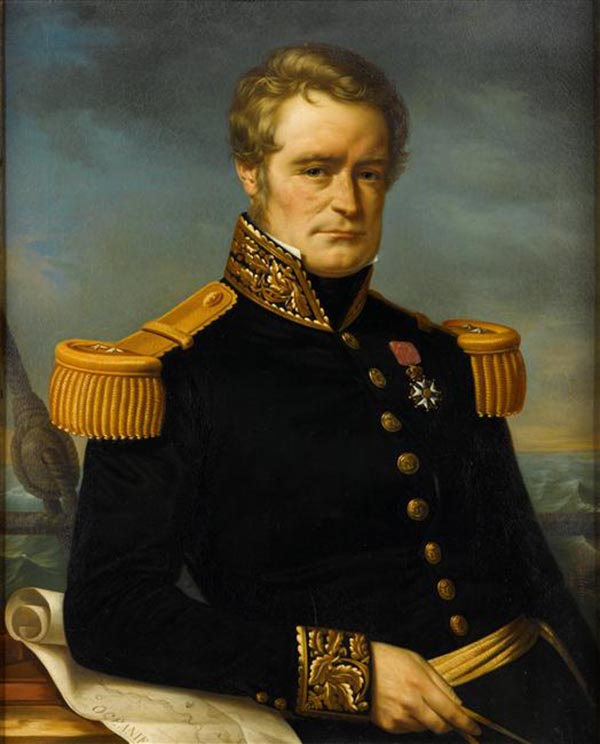Jules Dumont d'Urville (May 23, 1790 - May 8, 1842) was a French naval officer, botanist, cartographer, and polymath, best known for his explorations of Antarctica and the southwest Pacific, including Australia and New Zealand, in the 1820s - 1830s. Born to a rural noble family in Normandy, he suffered health problems in childhood but managed to gain entrance to the Naval Academy at Brest. As Napoleon's navy was blockaded in its ports by the British, Urville had ample time to devote to the study of botany, entomology, and foreign languages, for which he displayed a remarkable talent; this later proved highly useful in his interactions with the Māori and other Pacific peoples. Following the Napoleonic Wars, he was involved in surveys of the Greek Archipelago, where he played an instrumental role in bringing the statue Venus de Milo to France, more specifically to the Louvre, which was in a sorry state after having had to return the spoils of Napoleon's conquests to their home countries. Between 1822 and 1825, he served as second-in-command on the Coquille Pacific expedition, from which he brought back many botanical specimens for the Muséum national d'histoire naturelle. After returning to France, he immediately set about organizing a new expedition to be led by himself. Using the same ship, now rechristened the Astrolabe, Urville aimed to undertake a circumnavigation, expand his earlier cartographic and scientific work, and to seek information on the lost voyage of Jean-François de Galaup, comte de Lapérouse, which Urville discovered to have shipwrecked on the island of Vanikoro in the Solomon Islands nearly forty years prior. The voyage, lasting from 1826 - 1829 was a resounding success, gaining tremendous new insights into the geography and culture of the Pacific, and with Urville being credited for coining the terms Melanesia and Micronesia. Never a jolly figure, Urville's health problems and complaints about the navy and government caused him to become even more disagreeable and he encountered difficulties securing support for another expedition. Finally, in 1837, the French crown approved an expedition to seek the South Magnetic Pole, a task which Urville exhibited little interest in, but accepted knowing that he was unlikely to gain support for another Pacific expedition (by this time, French aspirations to establish colonies on Australia and New Zealand, which had motivated the earlier expeditions, were diminished with increasing British influence there). This voyage, between 1837 - 1840, was plagued with delays and problems and nearly resulted in disaster given the ease with which ships could get caught in the Antarctic ice. Nevertheless, Urville managed to avert disaster and rather accidentally joined a small group of pioneering Antarctic explorers. Urville and his family tragically died in the 1842 Versailles rail accident, the worst ever rail disaster at the time.

